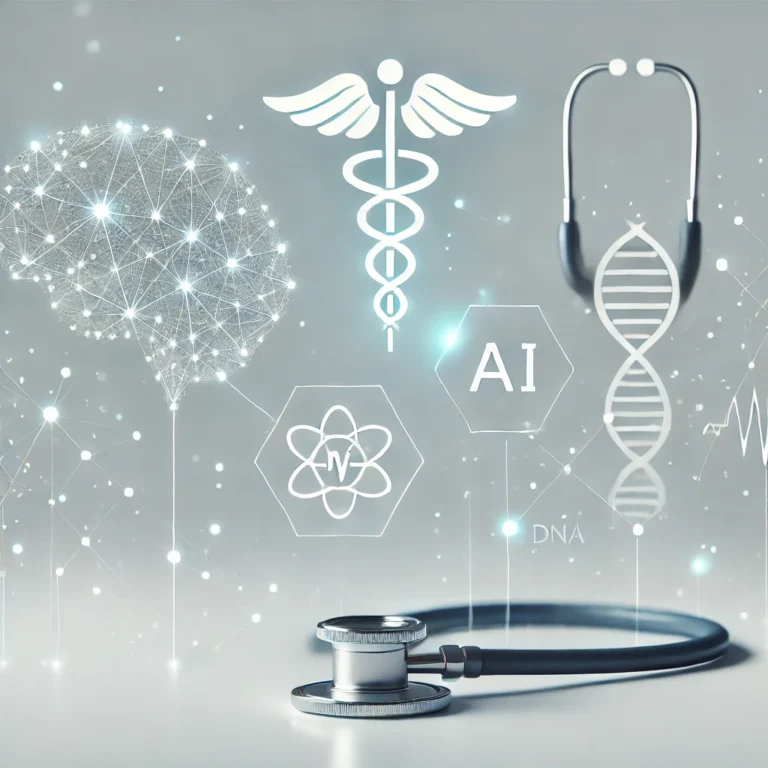
The Future of Medicine is AI-Powered and Personalized
According to renowned physician-scientist Eric Topol, artificial intelligence (AI) and the integration of multimodal personal data are poised to revolutionize and redefine medicine as we know it. In a recent interview with Mark Hyman, Topol shared his insights on how AI will reshape diagnosis, prevention, and personalized treatment.
AI Unlocks New Dimensions of Diagnostic Accuracy
One of the most significant impacts of AI in medicine is its ability to interpret medical scans and detect subtle patterns that humans may miss. Large language models have already demonstrated their prowess in complex medical diagnosis, outperforming experienced doctors by a factor of two. By integrating multi-omic data (such as genomics, proteomics, and metabolomics), sensor data, and environmental factors, AI can provide a comprehensive and individualized understanding of each patient’s unique risk profile.
Preventive Medicine Becomes a Reality
“Preventive medicine has been a fantasy throughout our careers,” Topol notes, “but primary prevention is going to be actualized in the era of AI.” With AI’s ability to analyze vast amounts of personal data and identify early risk factors, preventive medicine will no longer be a pipe dream. Conditions like Alzheimer’s, Parkinson’s, and diabetes could be predicted years before symptoms appear, enabling proactive interventions and lifestyle changes to mitigate risks.
Precision Medicine Tailored to the Individual
Traditional medicine has often treated diseases as homogeneous entities, overlooking the heterogeneity and individualized mechanisms at play. AI’s integration of multimodal data will enable truly personalized medicine, where treatments are tailored to each patient’s unique biological profile. “We will have this kind of pinpoint precision and accuracy which will help promote very specific individualized treatment,” Topol explains.
Restoring the Patient-Doctor Relationship
One of the most exciting prospects of AI in healthcare is its potential to alleviate the administrative burden on doctors. By automating clinical documentation, AI can “liberate” physicians from becoming “data clerks,” allowing them to focus on building meaningful relationships with their patients and providing compassionate care. “This is finally the payback for all these bad years of having to become data clerks,” Topol remarks.
Overcoming Challenges and Embracing Change
While the integration of AI in medicine holds immense promise, it also presents challenges. Generating compelling evidence of improved patient outcomes, reforming reimbursement models, and gaining trust in AI-driven decision-making are crucial hurdles to overcome. However, Topol remains optimistic, stating, “We’re about to kind of get out of our little dark ages. It’s going to be the biggest shakeup I think it’s going to redefine medicine.”
Empowering Patients and Embracing AI-Assisted Self-Care
As AI-enabled virtual health coaches become more sophisticated, integrating multi-omic data and personalized guidance, patients will be empowered to take a more active role in their own health management. This could alleviate the burden on healthcare systems while promoting preventive self-care practices tailored to each individual’s unique profile.
The Path Forward: Accelerating the Transformation
To fully realize the potential of AI in healthcare, Topol recommends accelerating evidence generation, developing robust virtual health coaching platforms, advocating for patient access and ownership of personal health data streams, reforming medical education to prioritize AI-enabled precision prevention and individualized care, and implementing AI clinical documentation to restore the patient-doctor relationship and human caring.
As we stand on the precipice of this transformative era, it is clear that AI’s integration of multimodal personal data will redefine preventive, predictive, and precision medicine, ushering in a new era of personalized healthcare and optimized patient outcomes.
